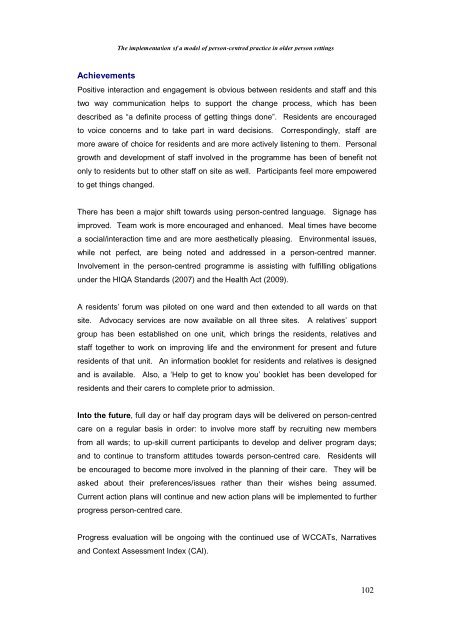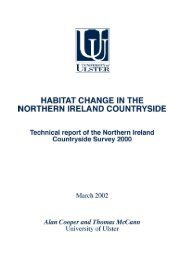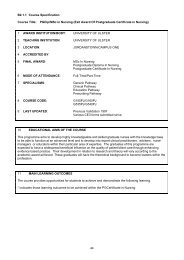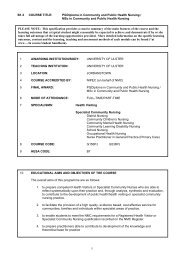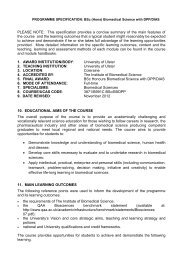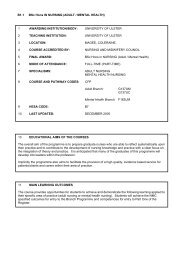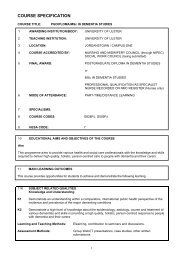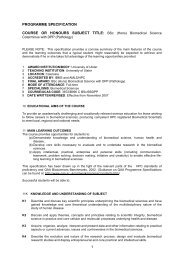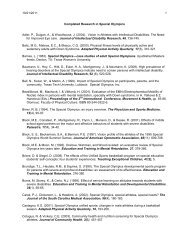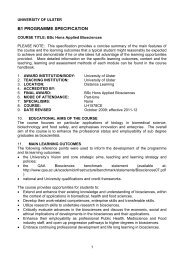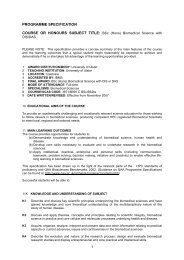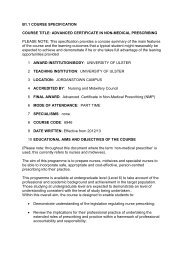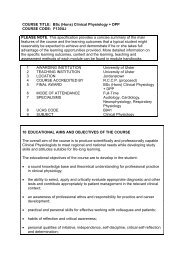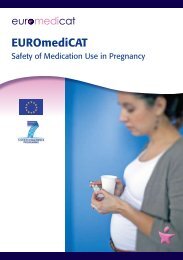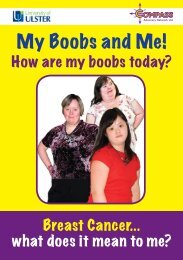The Implementation of a Model of Person-Centred Practice In Older ...
The Implementation of a Model of Person-Centred Practice In Older ...
The Implementation of a Model of Person-Centred Practice In Older ...
Create successful ePaper yourself
Turn your PDF publications into a flip-book with our unique Google optimized e-Paper software.
<strong>The</strong> implementation <strong>of</strong> a model <strong>of</strong> person-centred practice in older person settings<br />
Achievements<br />
Positive interaction and engagement is obvious between residents and staff and this<br />
two way communication helps to support the change process, which has been<br />
described as “a definite process <strong>of</strong> getting things done”. Residents are encouraged<br />
to voice concerns and to take part in ward decisions. Correspondingly, staff are<br />
more aware <strong>of</strong> choice for residents and are more actively listening to them. <strong>Person</strong>al<br />
growth and development <strong>of</strong> staff involved in the programme has been <strong>of</strong> benefit not<br />
only to residents but to other staff on site as well. Participants feel more empowered<br />
to get things changed.<br />
<strong>The</strong>re has been a major shift towards using person-centred language. Signage has<br />
improved. Team work is more encouraged and enhanced. Meal times have become<br />
a social/interaction time and are more aesthetically pleasing. Environmental issues,<br />
while not perfect, are being noted and addressed in a person-centred manner.<br />
<strong>In</strong>volvement in the person-centred programme is assisting with fulfilling obligations<br />
under the HIQA Standards (2007) and the Health Act (2009).<br />
A residents’ forum was piloted on one ward and then extended to all wards on that<br />
site. Advocacy services are now available on all three sites. A relatives’ support<br />
group has been established on one unit, which brings the residents, relatives and<br />
staff together to work on improving life and the environment for present and future<br />
residents <strong>of</strong> that unit. An information booklet for residents and relatives is designed<br />
and is available. Also, a ‘Help to get to know you’ booklet has been developed for<br />
residents and their carers to complete prior to admission.<br />
<strong>In</strong>to the future, full day or half day program days will be delivered on person-centred<br />
care on a regular basis in order: to involve more staff by recruiting new members<br />
from all wards; to up-skill current participants to develop and deliver program days;<br />
and to continue to transform attitudes towards person-centred care. Residents will<br />
be encouraged to become more involved in the planning <strong>of</strong> their care. <strong>The</strong>y will be<br />
asked about their preferences/issues rather than their wishes being assumed.<br />
Current action plans will continue and new action plans will be implemented to further<br />
progress person-centred care.<br />
Progress evaluation will be ongoing with the continued use <strong>of</strong> WCCATs, Narratives<br />
and Context Assessment <strong>In</strong>dex (CAI).<br />
102


